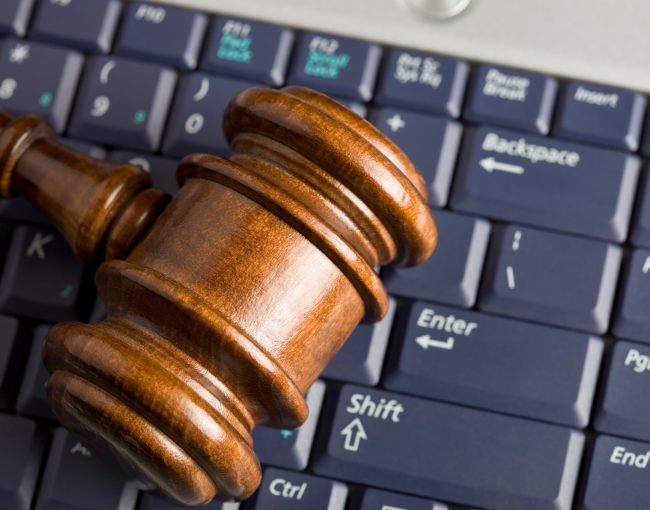The Future of Legal Process: Remote Depositions Explained
The Future of Legal Process: Remote Depositions Explained
Blog Article
Navigating the Future of Legal Proceedings With Seamless Remote Depositions Solutions
The landscape of legal procedures is quickly developing, with remote depositions arising as a noticeable feature in this improvement. As innovation remains to advancement, the integration of smooth options for remote depositions has actually become important for lawyers seeking efficient and affordable ways to carry out depositions. Nevertheless, the path to fully welcoming this change is not without its difficulties and factors to consider. By discovering the ins and outs of browsing the future of lawful process with smooth remote deposition solutions, a clearer understanding of the opportunities and complexities that exist ahead can be gotten.
The Increase of Remote Depositions
With the advent of sophisticated online communication modern technologies, the technique of remote depositions has experienced a substantial surge over the last few years. This shift has actually been mostly driven by the requirement for versatility, performance, and cost-effectiveness in lawful procedures. Remote depositions enable lawyers, witnesses, and court press reporters to take part from various places, removing the need for physical presence in a certain deposition space. The capacity to perform depositions remotely has actually proven invaluable, particularly in situations where travel or in-person gatherings are impractical or limited.
Moreover, the innovations in video conferencing systems and electronic devices have actually improved the general experience of remote depositions, making sure clear audio-visual communication and safe and secure documentation of testaments. Legal experts now have the option to seamlessly set up, document, and record depositions with convenience, simplifying the whole process.
As modern technology continues to progress, remote depositions are anticipated to come to be a lot more widespread in the lawful sector, offering a practical and reliable remedy for performing depositions in a fast-paced and interconnected world. (REMOTE DEPOSITIONS)
Advantages of Seamless Technology Assimilation
Just how does smooth technology assimilation boost the performance and performance of remote depositions in the legal market? Smooth innovation combination plays a critical role in improving remote depositions, using a myriad of benefits to lawful experts. By flawlessly integrating innovation into the deposition procedure, lawyers can carry out depositions effortlessly, no matter the individuals' physical places. This integration enables real-time interaction, record sharing, and cooperation, promoting a more reliable and productive deposition experience.
In addition, seamless innovation integration allows safe and dependable information transmission, making sure that delicate info shared during depositions is secured. Advanced features such as online exhibitions, digital trademarks, and video conferencing improve the total efficiency of remote depositions, mimicking the in-person experience with included benefit. Additionally, the assimilation of transcription solutions and AI-powered devices can even more enhance the deposition process, conserving time and reducing the margin of error.

Conquering Challenges in Online Proceedings
To effectively navigate digital proceedings, attorneys should resolve and conquer various difficulties that emerge in the digital atmosphere. One of the main barriers dealt with in virtual procedures is making sure safe interaction and information protection. With sensitive details being shared online, preserving client discretion and avoiding information breaches is vital. Additionally, technological problems such as inadequate net connection or audio/video issues can disrupt the flow of process and impact the high quality of communications between participants. Lawyers need to also adapt to the absence of physical presence, which can hinder non-verbal signs and interaction subtleties important in legal contexts. Keeping engagement and focus in online setups can be challenging for both legal groups and witnesses, potentially impacting the efficiency of the proceedings. To minimize these challenges, attorneys should purchase reputable innovation, establish clear methods for virtual process, give training Get More Information on digital decorum, and guarantee contingency strategies remain in place to resolve technological concerns quickly. By proactively resolving these difficulties, lawful experts can improve the effectiveness and effectiveness of online process.
Ensuring Safety and Compliance Actions
In the realm of legal procedures, securing protection and making certain compliance steps is of paramount relevance for keeping trust and supporting the honesty of the process. With the shift in the direction of remote depositions, making certain the safety and security and confidentiality of delicate information traded during these proceedings is vital. To attain this, attorneys need to take advantage of safeguard on-line systems that use end-to-end encryption, secure accessibility controls, and conformity with industry regulations such as HIPAA and GDPR.

Future Trends in Legal Tech Combination
As the lawful landscape proceeds to progress with remote deposition services highlighting safety and security and image source compliance, the combination of advanced lawful modern technologies is poised to shape future trends in the lawful industry. AI-powered tools can assist in legal study, agreement analysis, and also predicting instance results based on historic data.
Furthermore, cloud-based services are coming to be increasingly popular in the legal sector. Cloud modern technology provides boosted adaptability, scalability, and accessibility, enabling lawyers to work collaboratively from anywhere with a web connection. recommended you read This trend not just enhances performance yet likewise advertises cost-effectiveness by decreasing the demand for physical facilities and upkeep.
Furthermore, blockchain technology is making its way right into legal technology integration, using secure and transparent methods to deal with delicate details, improve transactions, and confirm the credibility of legal records. By accepting these future patterns in lawful technology assimilation, law firms can remain in advance of the curve, improve client solutions, and adapt to the transforming demands of the industry.
Final Thought
To conclude, the integration of smooth remote deposition services has revolutionized lawful proceedings by supplying numerous advantages such as enhanced efficiency, cost-effectiveness, and accessibility. Despite encountering difficulties in virtual proceedings, advancements in innovation remain to address safety and security and compliance issues (REMOTE DEPOSITIONS). As the legal market embraces further integration of modern technology, future trends aim towards a more structured and efficient lawful process
Report this page